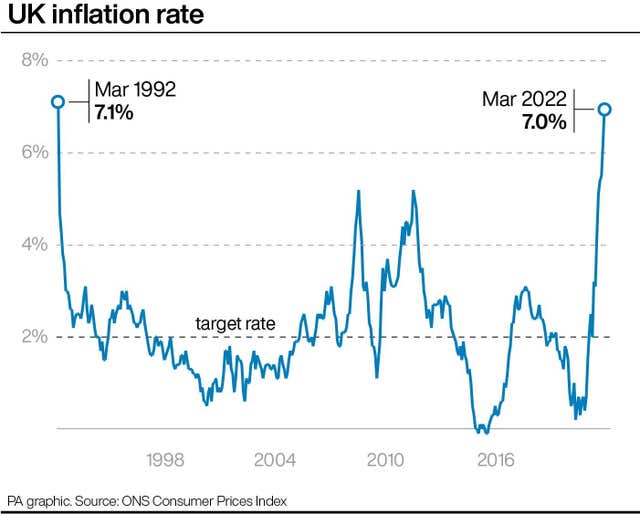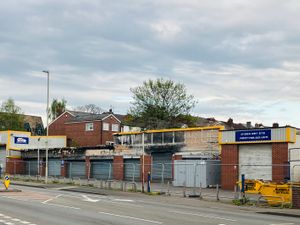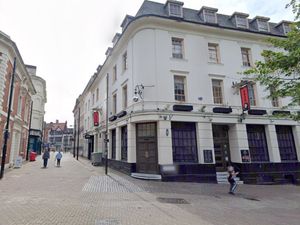Tesco warns over profit hit from rocketing inflation
The supermarket giant’s group pre-tax profits jumped to £2.03 billion in the year to February 26, up from £636 million the previous year.
Supermarket giant Tesco has warned earnings will come under pressure from soaring inflation and as it battles to keep prices low for cash-strapped shoppers.
The UK’s biggest grocery chain saw shares fall 6% as it said retail operating profits are set to fall by up to 9% in the year to next February, with the group facing rising costs for fuel and energy, and as suppliers hike their prices.
The alert came as official figures revealed inflation rocketed to a 30-year high of 7% in March, up from 6.2% in February.
Tesco said it was “laser focused” on trying to keep prices low for its customers, but costs are rising across the board and it said it was seeing early signs that shoppers are beginning to tighten their belts in the face of the cost-of-living crisis.
Tesco chief executive Ken Murphy said: “Clearly, the external environment has become more challenging in recent months.
“Against a tough backdrop for our customers and with household budgets under pressure, we are laser-focused on keeping the cost of the weekly shop in check – working in close partnership with our suppliers, as well as doing everything we can to reduce our own costs.”
The warning took the shine off results showing group pre-tax profits more than trebled to £2.03 billion in the year to February 26, up from £636 million the previous year.
It posted a 58% jump in underlying operating profits to £2.8 billion, with retail earnings up 34.9% at £2.65 billion thanks to rising sales and as costs related to the pandemic dropped to £220 million from £892 million the previous year.
But cost pressures and investment in prices to remain competitive is expected to see retail operating profits fall to between £2.4 billion and £2.6 billion this year.
Tesco is also seeing customer behaviour return to more normal patterns, with shoppers relying less on supermarkets as they begin to return to offices, travel abroad and go to pubs and restaurants after restrictions were scrapped.
This means online sales, which raced higher during lockdowns, are easing back – down 6.5% on a like-for-like basis in 2021-22, but still 66.1% higher than before the pandemic struck.

Customers are also starting to rein in spending, according to Mr Murphy.
He said: “We can see that customers are already starting to look at how they manage their budgets and are starting to make trade-offs.
“Whether that’s eating in rather than eating out or trading to own-brand products.”
It said Tesco’s own costs were rising fast, having spent around £200 million on employees and increasing staff wages, with a similar rise in energy costs, as well as higher property and fuel expenses.
It is looking to save £1 billion over the next three years to help offset cost pressures.
Full-year results showed the group’s sales excluding fuel rose by 2.5% to £54.8 billion, with UK like-for-like growth of 0.4% – up 8.2% on a pre-pandemic two-year comparison.
It announced a 19% rise in its full-year shareholder dividend payout and pledged to return another £750 million in share buybacks by April next year.
Matt Britzman, equity analyst at Hargreaves Lansdown, said: “Tesco’s strategy relies on its ability to offer prices that compete with low-cost peers like Aldi and Lidl, and it’s executed on that very well with price match campaigns and a focus on Clubcard rewards.
“But that doesn’t come cheap, and keeping that proposition alive is going to cost more in the coming year than ever before as inflation hits both Tesco’s own costs and their customers’ wallets.”





